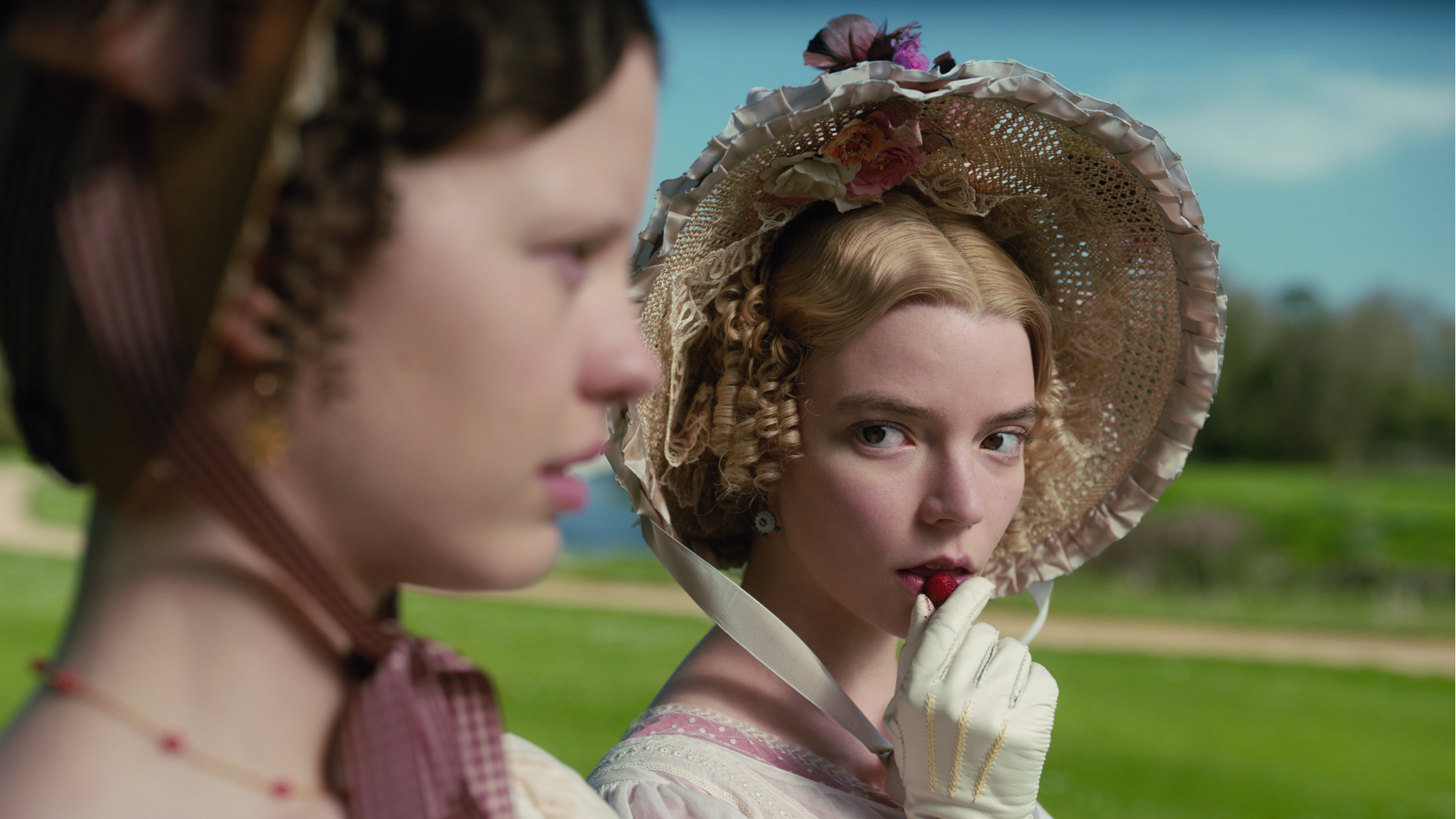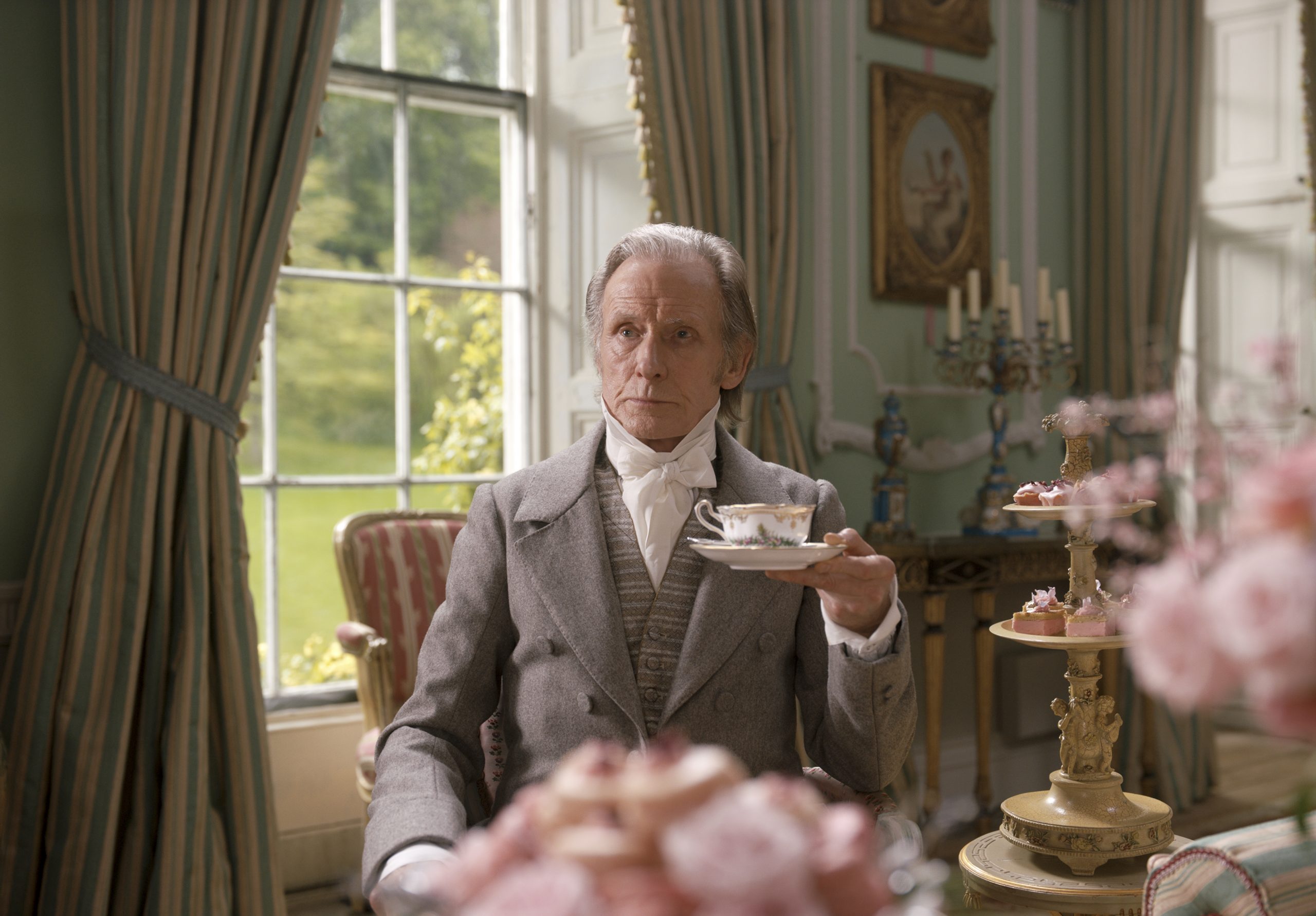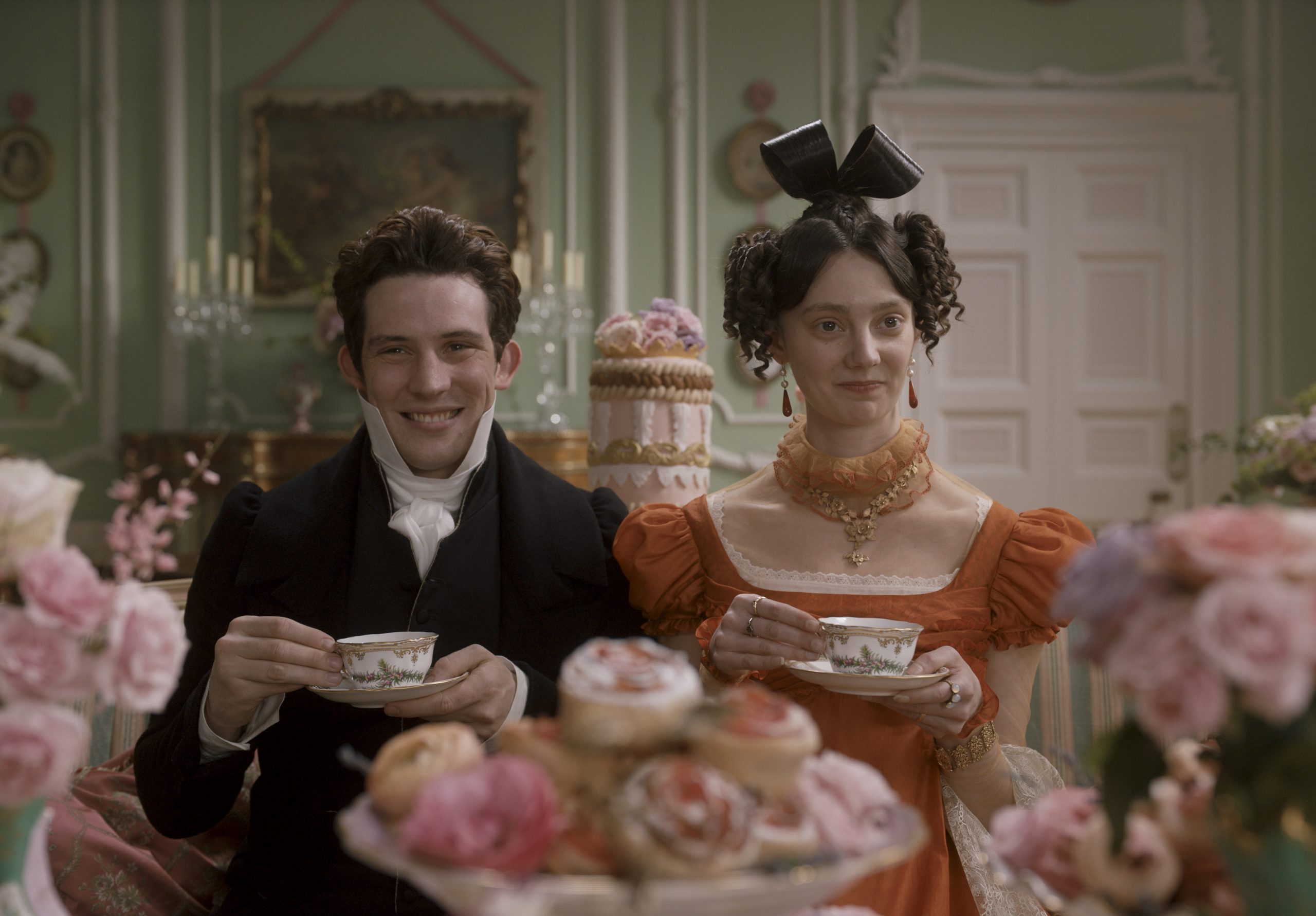The cast of Emma talk Autumn de Wilde, crying together on set and how Miss Woodhouse is an early feminist hero
'If Emma Woodhouse was a man, people really wouldn’t question her behaviour and her treatment to others and how she views her place in this world'


Celebrity news, beauty, fashion advice, and fascinating features, delivered straight to your inbox!
You are now subscribed
Your newsletter sign-up was successful
Jane Austen's Emma is back in our lives, with Autumn de Wilde's film adaptation of the iconic feminist novel coming out on DVD this week. And with Autumn at the helm, perfection is the only option.
From the stunning cinematography and the exquisite costumes to the all-stall cast, this film is one of this year's top releases. But something that struck Marie Claire's Digital Features Editor Jenny Proudfoot more than most as she sat down with the cast earlier this year was their love for each other.
The people involved in this film clearly had an absolute ball filming and there is no doubt that they have nothing but real love and admiration for each other, with Autumn seemingly becoming somewhat of a mother figure.
Digital Features Editor Jenny Proudfoot sat down with Anya Taylor-Joy, Mia Goth, Josh O'Connor and Bill Nighy to find out about filming and why Emma Woodhouse might just be the most iconic of all Austen heroines...
Would you agree with the statement that Emma is an early feminist hero?
MIA: I would absolutely agree with that statement and I think that might be why to this day people have such a hard time liking Emma Woodhouse. I feel if Emma Woodhouse was a man, they really wouldn’t question her behaviour and her treatment to others and how she views her place in this world. It’s very telling and revealing of ourselves and how we judge others. As women we represent more than half the population of this world and there is a growing appetite to see ourselves represented on screen and because of social media and because of how small the world has become as a result of that, we’re building a community and our voices are being heard and represented. And that’s really exciting. Cinema just wouldn’t be able to survive if we weren’t representing the fact that the majority of women these days are independent and courageous and doing their best. And there’s still work to be done - there always will be, but it’s good that it’s changing and that we can feel the tides turning.
ANYA: Big time. When creating this character, I wanted to stay true to what Austen had said about her, which is ‘I’ve created a character that I’m not sure anybody else is going to like other than me’. That was it for me. It has always bothered me that a lot of female characters have been written in a way that they don’t just have to be likeable, they have to be easily likeable. It’s so annoying because human beings are so messy - Just allow them to be messy. And also, there is something about period dramas where people just think that human beings were perfect and had no bodily functions and just frolicked around in fields wearing bonnets looking pretty and that’s just not true. So it was really exciting to get a human being, put them in a corset and let them attempt control. I also think one of the ways that she is a feminist icon is that she has figured out a very sneaky little loop hole in society at that time. There was no matriarch - she doesn’t have a mother figure and her father is a valetudinarian and all over the place, so Emma is completely in control of that estate. She controls the money, she decides what she wants to spend her money on - and from a very young age. She is her own master. And one of the speeches that she gives to Harriet about why she doesn’t want to marry shows an acute awareness of the society she’s in.
The most important relationship is between Emma and Harriet. Did you feel a strong sense of sisterhood filming together?
ANYA: What’s crazy is when I first met Autumn, she had brought this exquisite box of Emma ideas. She pulled out a photograph and said ‘This girl just looks like she could be your best friend’, and showed me a picture of Mia. And Mia and I had been best friends at that point for about three years, so we just couldn’t believe it. Mia hadn’t even been approached yet because Autumn was being so kind and wanted my casting opinions. When she showed me Mia, I was like ‘Her, it has to be her’. It made for some really beautiful filming moments, particularly the reconciliation scene between Harriet and Emma. It timed out that it was Mia’s last day and her last scene. We had been living together for months and were so attached at the hip and all of a sudden it wasn’t Harriet and Emma anymore, it was just the two of us sobbing at each other. I was so proud of my best friend and the work that she had done - I just get goosebumps thinking about it - all acting went out the window and it was just the two of us sobbing and hugging each other. We were obviously ugly crying but they are really beautiful takes.
Celebrity news, beauty, fashion advice, and fascinating features, delivered straight to your inbox!
MIA: We have a very special friendship privately. We have known each other almost 5 years, so really we have been prepping Emma and Harriet for about four years. And when you are with your best friend, you just get each other, you don’t have to communicate and express yourself in the same ways. Looks and body language will do it all and I really felt like that translated onto set. It was so fun because we surpassed so many ordinary social cues and getting to know each other and we were able to just get into the work and explore and dig and really get to the real truth of them and feel comfortable from day one.

What drew you to the project?
MIA: Primarily Autumn de Wilde. I met with her and I thought she was extraordinary. I sat with her and I was so blown away with how clearly she was so inspired and so in love with the story. She took out this box that she made and she took out all these cards that she had hand-drawn and she had essentially story boarded the entire film months before we even went into production. I was just so excited and so invigorated by her energy and I just couldn’t wait to work with her.
ANYA: I’m very picky about the roles I take on as an actor. It has to be the right story. I have to feel right to tell the story and compelled to tell it, but I have been very lucky with all of the directors I’ve ever acted with in that they have always supported my evolution. Emma was both my and Autumn’s lovechild. When I first met Autumn, she had a box that she had created for Emma ideas. She was very kind and wanted my opinions. It was one of the most exceptional things I’ve ever seen because when Autumn de Wilde does something, she does it right. That’s Autumn all over.
BILL: I don’t do many period dramas but Autumn de Wilde drew me in. I met Autumn and she was so funny and clever and smart and unusual and unexpected. She spoke about Jane Austen and Emma in a way that I had never really heard before. I had – and still have – no relationship with Jane Austen really whatsoever. I’ve never read any of her books, I’ve never seen any of her films, I’ve never seen any of the TV adaptations. But this film wasn’t written by Jane Austen, obviously – it was written by Eleanor Catton. And the first person I met was Autumn de Wilde, who made a big impression on me. Both she and Eleanor really made me laugh. They’re smart - and I mean dead smart.
JOSH: Well, I’ve definitely not done a role like Elton before. I think that’s what drew me to the project. I’ve spent a lot of my young-ish career doing quite serious, sometimes tragic, ‘subtle’ acting and that’s sort of ultimately my natural instinct. But I think it’s always good to stretch your comedy muscles a little bit and throw yourself out of your comfort zone. And also Autumn de Wilde. I love the story of Emma, and I met Autumn and I was like, ‘I can’t not be in your film’.
What was it like working with Autumn de Wilde?
ANYA: Incredible. She was so wonderfully inclusive. In the ways that Emma is a terrible matchmaker, Autumn is an amazing friend matchmaker - she cherry picked people and put them together in a room and we were like ‘Where have you been my whole life? This is the way things are supposed to be’. She is so maternal too. She’s not just directing a film, she’s taking care of all of us as people and she gives such good advice. She’s been observing people for so long and she’s been through so much herself so she always knows what to do. We call it ‘friend hospital’. I’ll call Autumn and be like ‘I need friend hospital right now. The boy has been mean to me. What do I do?’ - she talks me through everything. She knows everything about my life really and I know a lot about hers.
BILL: She was very interesting. She’s very fetishistic about objects and the composition of the frame and your costume because she’s a very eminent photographer. Every frame is composed. The cliché is: you could take it out and hang it on the wall. Because that’s her background. And also the cameraman, Christopher Blauvelt, is one of the most impressive people I’ve ever met. They shot it so beautifully. They’re both self-styled punks from Los Angeles, California. But they didn’t modernise or betray the period in any way at all. One of the first things she did was screen for the cast, Bringing up Baby with Katharine Hepburn, as the masterwork to which we would refer and as an example of what she and the Americans would call a 'screwball comedy'. So that was her first idea, she wanted to feature the comedy because she had come to Emma as a novel and had seen that Jane Austen was a satirist and a comedy writer to some degree - she wanted to feature that as much as the romance. She did things I’ve never experienced before - she used to put things in my pocket, you know, hide things in my costume, for luck.
MIA: She never put any lucky charms in my pocket! I would definitely say she was the most particular director I have ever worked with which was really interesting to experience. She is so detail-oriented and a perfectionist - she’s thought through everything and from the placement of a cup to a cookie on a tray, she’s just got an eye that I’ve never experienced before. You would think that perhaps that would be somewhat stifling and would tighten you up, but actually the opposite happened. We all felt so free because she was so on it and was such a cheerleader on set, always rooting for us. She is so maternal. She really is, which is nice in a director. And I’m very reliant on my directors. I don’t think all actors are but I have come to realise that I do need a nurturing collaborative relationship with my directors. That’s where I think I thrive and I do my best work. And it just came really easy for us.
JOSH: Autumn is amazing, she’s incredible - like heaven to work with. She’ll be behind the monitor and let you try something ridiculous, that any other director wouldn’t let you try, because it’s ridiculous and you’re fired. But with Autumn, she’d just laugh her head off at everything. She loves to see actors trying things out, and if it doesn’t work out, it’s fine. If I ever stretch my comedy muscle again, it will have to be with someone like Autumn who makes me feel safe. Autumn is like our mum. If I ever feel down or I’m struggling with anything, Autumn’s right up there with people who I’d call. She’s lovely.

What were your most memorable filming moments?
ANYA: Don’t ask me how it happened because I do not know, but at a pivotal moment Emma gets a nosebleed and the way that was supposed to happen was we were supposed to cut, they were supposed to come in and paint the blood on and we were going to continue. But I just started bleeding on cue. It just happened. I had a nose bleed on cue. I literally don’t know how it happened and it was hilarious because both Johnny and Autumn were like ‘Oh my God - are you OK? What’s going on? What should we do?’ And I was like ‘Keep rolling - are you kidding me? This is not going to happen again!’ So that’s my real blood in the movie. I used to get nosebleeds when I was little but I hadn’t got one in years. I was so proud. I was such an actor about it. I don’t know if I could do it again. I was just there and it was the right time and it just worked out. Johnny was looking at me like I was a freak but in a good way. We were all very proud of that moment.
JOSH: A favourite moment of filming for me was actually when Miranda [Hart] cries when she’s bullied by Emma. We were doing the picnic scene and it was just so shocking, because we know Miranda as being this sort of comedian, and then when she broke down a bit, we all broke down. I remember when they called ‘cut’, I was crying and I looked over and Tanya was crying, Anya was crying, Mia was crying. Everyone had broken down and Autumn came over and we all had a big hug. It was so sweet - a real bonding moment.
MIA: I loved meeting Emma for the first time. I really had fun with that scene. It was so much dialogue, and I loved the room that we were in - the colours, the set design and the tea ceremony that was taking place. Filming really was such a fulfilling job for me and I went home pretty much every night feeling really satisfied with the work we were putting in.
BILL: I liked the scene with the screens with Johnny, Anya and myself towards the end. I kind of manipulate them into being together. That gave me pleasure. There was a real kind of resolution in it. It was a good day’s work. They were both dreamy to work with. It was such a wonderful group - a lovely group of actors. And I’m pleased that you won’t have seen a lot of them before in a film. I think it’s impeccably cast. The audience may not have seen them before, or may not have seen them in this kind of thing before. But you will be hearing from all of them. They are going to be huge.
Emma. the film is available on Blu-Ray and DVD now.

Jenny Proudfoot is an award-winning journalist, specialising in lifestyle, culture, entertainment, international development and politics. After working at Marie Claire UK for seven years - rising from intern to Features Editor - she is now a freelance contributor to the News and Features section.
In 2021, Jenny was named as a winner on the PPA's '30 under 30' list, and was also listed as a rising star in journalism.